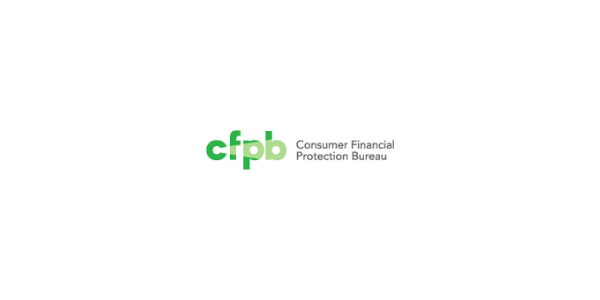
MBA reports that 2022 will see a 30% drop in mortgage originations, driving lenders and title companies to seek ways to streamline operations and increase ROI.
- The study found that lenders can save up to $444 per loan and title agents up to $100 per loan with RON, producing positive ROI.
- 87% of those in the study indicated that eClosing may help close more loans with the same or fewer staff.
- Some states and organizations remain vehemently opposed to RON, such as Texas-based American Association of Notaries and some notary associations in California. These organizations believe that RON hurts notaries and low-income people.
- In 2022, lenders and title companies are seeking ways to streamline operations, grow market share, remain competitive, and improve borrower experience while providing increased ROI.
Notarize, the online notarization platform, announced that MarketWise Advisors, LLC released an independent study of the impact of eClose with Remote Online Notarization (RON) via Notarize. The study found that lenders can save up to $444 per loan and title agents up to $100 per loan, producing positive return on investment (ROI) as they can be closed faster, with fewer errors and more money that can be saved than an in-person or legacy paper process.
When using RON, lenders benefit from direct time elimination, transactional quality improvement, and direct costs associated with mail, printing, shipping — as well as reduced risk of lost documents. Lenders and title agents agree they can close loans faster and with fewer people involved while improving overall loan quality by reducing critical errors, avoiding missed signatures and unnecessary rework.
Full eClosed loans also reduce funding time during post-closing to the secondary market and results in an improved return on investment.
Overall, 87% of those in the study indicated that eClosing may help close more loans with the same or fewer staff. Lenders doing hybrid eClosings experienced a 99 minute reduction. Lenders who leverage online notarization for a full eClosing saw a reduction of 157 minutes per transaction. Title agents saved up to 104 minutes on their part and experienced improved lender communication, ease, and reduced time during the closing.
Other major findings in the study was that eClosings lead to gains in operational efficiency, improved loan quality, and 31% reduction of errors.
Time is money in the mortgage industry and lenders experienced an increase in ROI across the entire eClosing life cycle, saving up to seven days in the processing and funding cycle and decreasing the cost by $174 per loan.
Even the migration from hybrid to full eClosings provides financial and operations benefits. Lenders who transitioned from hybrid to RON got $211.97 in total impact, a 37% uplift. Lenders transitioning from hybrid with eNote to full eClose (online notarization, eVault, and eRegistry) realized about $444 in total impact, providing a 91% uplift. Meanwhile, title agents who transitioned to online notarization for eClosings saved about $100 due to reduced time, increased loan quality, and elimination of paper and shipping costs.
The push to use RON and eClosings came with the onset of the pandemic. Title agents needed to reduce in-person visits, forcing that sector of the industry to transition into a digital framework and leave the legacy paper process behind. In May 2021, Congress passed the SECURE Notarization Act in reaction to the global crisis; however, it has yet to become law. Until it does so, states have been choosing whether or not to allow this implementation.
The Opposition
Some states, or mainly the notarization organizations in those states, remain vehemently opposed to RON, such as Texas-based American Association of Notaries and some notary associations in California. These organizations believe that RON hurts notaries and the public.
Notary public Matt Miller, for instance, is the head of Oppose AB 199 — an organization that opposes RON legislation nationwide, but especially within his home state of California. Miller contends that online notarization is not secure, and it opens the door to notary signings done under duress. He also points out cases of online fraud that compromises people’s personal information.
“A lot of people don’t understand that these platforms…they don’t have their own server farms, nor do they host their own data,” Miller said. “All that video, all that journal data, all of those documents are then pushed out to Amazon Web Services.”
Miller also points out that RON has an adverse economic impact on notaries and low-income people. He contends that it's unfair to local notaries, who often work part time for low fees, because now notaries can compete across state lines. It also hurts members of the public who do not have access to computers or cannot afford the RON platform fees.
“The consumers in the world aren’t as tech savvy as we take them for,” Miller said. “And most notaries tell me that you have to walk someone through how to use their webcam for the first time.”
So far, their opposition has had little effect beyond Louisiana and California, but it may certainly grow. A number of states have yet to embrace RON and eClosings, such as Alabama,
Arkansas, California, Connecticut, Delaware, Illinois, Mississippi, New Mexico, North Carolina, Maine, Massachusetts., Oregon, Rhode Island, and West Virginia. The remaining states allow the use of RON closings.
According to the recently-published Q3 Mortgage Bankers Association’s (MBA) Performance Report, the cost of originations is increasing, and with higher interest rates and low housing inventory, the MBA reports that 2022 will see a 30% drop in mortgage originations compared to last year. This is driving lenders and title companies to seek ways to streamline operations, grow market share, remain competitive, and improve borrower experience while providing increased ROI.
“Consumer expectations have shifted to digital-first, and that’s an incredible opportunity for the lender and title industries to be at the forefront of both what consumers want and what is also most financially and operationally efficient,” said Terri Davis, general manager of real estate at Notarize. “eClose is the final frontier of real estate, and we’re seeing the incredible ROI, both in the numbers and in consumer feedback, of those who fully embrace eClosing mortgages with online notarization. Wherever an organization is on their journey to go digital, Notarize is the partner to achieve your goals and provide a smooth path towards success, savings and efficiencies.”




